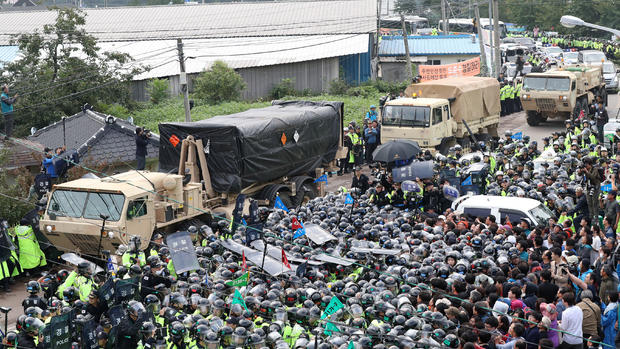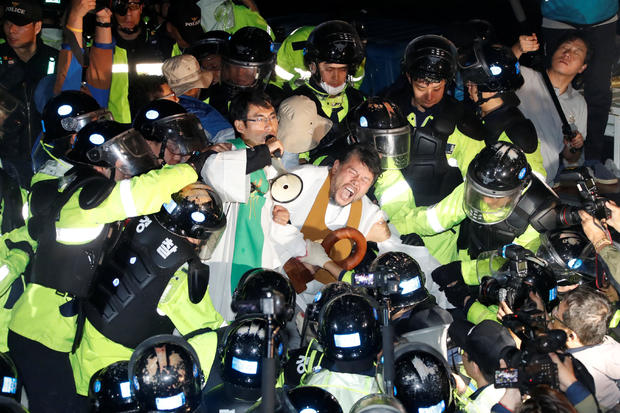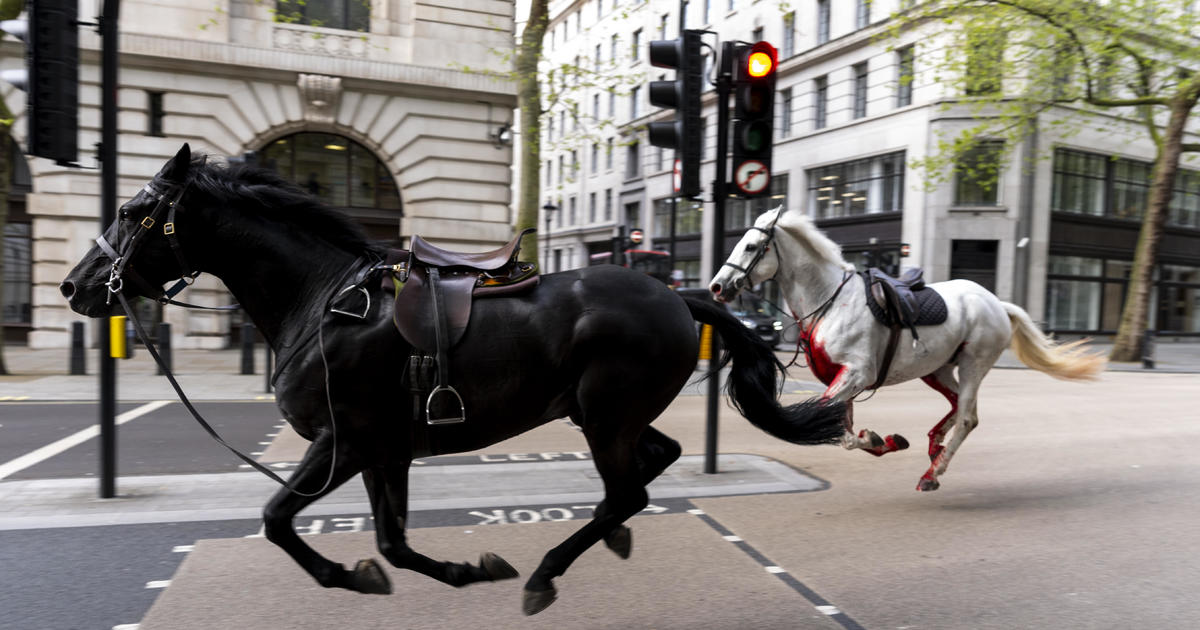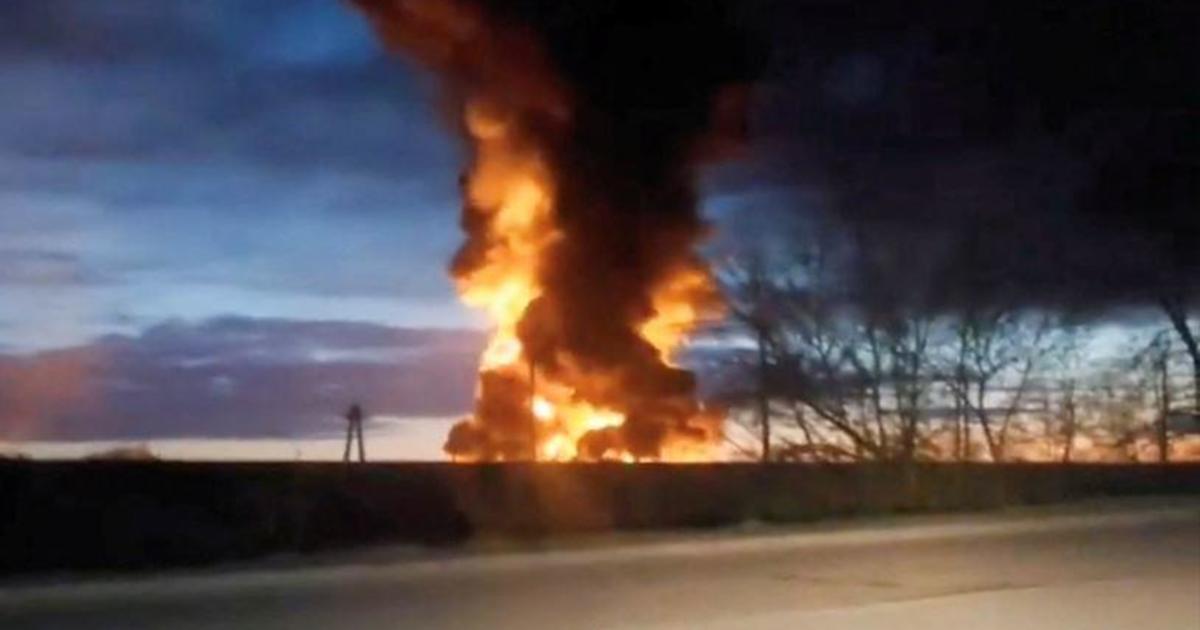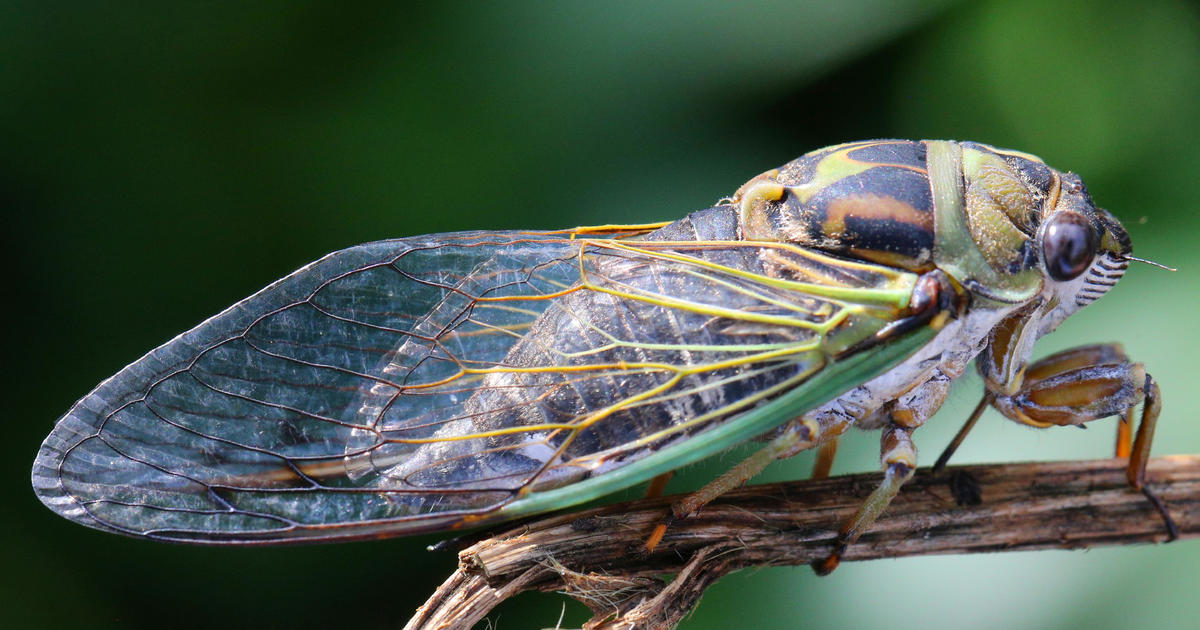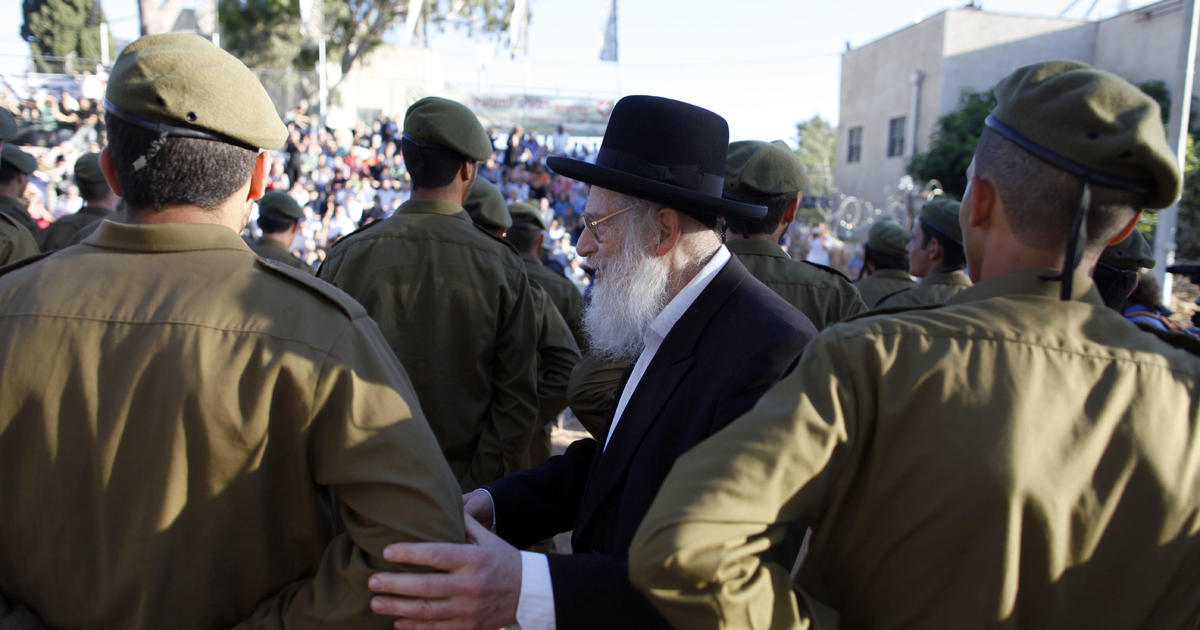S. Korea deploys THAAD launchers as China gives nod to U.N. sanctions against north
SEOUL, South Korea -- Dozens of people were injured in clashes between South Korean protesters and police Thursday as the U.S. military added more launchers to the high-tech missile-defense system it installed in a southern town to better cope with North Korean threats.
Seoul has hardened its stance against Pyongyang after its torrent of weapons tests, the latest a detonation Sunday of what North Korea said was a thermonuclear weapon built for missiles capable of reaching the U.S. mainland.
The clashes came as South Korean President Moon Jae-in and Japanese Prime Minster Shinzo Abe met in Russia's Far East and repeated their calls for stronger punishment of North Korea over its nuclear ambitions, including denying the country oil supplies. The demand contradicted the stance of their host, Russian President Vladimir Putin, who has dismissed sanctions as a solution.
Putin says he believes President Donald Trump's administration is willing to defuse tensions over North Korea's nuclear ambitions. Its sixth nuclear test on Sunday prompted the United States to speak about a "military response" and South Korea to conduct major military exercises.
Speaking at an economic forum in Russia's eastern port of Vladivostok, Putin said Thursday he believes the Trump administration is "willing to resolve the situation." He said there are "many reasonable people in the current administration" who are experienced and who have dealt with similar crises.
Putin called on all North Korea's neighbors to show restraint, indicating the bellicose rhetoric and the military drills are only "playing into their hands."
Moon and Abe in their meeting agreed to cooperate on seeking tougher United Nations sanctions against North Korea and pledged to strengthen efforts to persuade Beijing and Moscow into cutting off oil supplies to the North, said Yoon Young-chan, Moon's chief press secretary. Putin expressed concern that cutting off oil supplies would hurt regular North Koreans, Yoon said.
"We should not give in to emotions and push Pyongyang into a corner," Putin said in a news conference after meeting with Moon.
Putin later met with Abe and said that both leaders agreed North Korea's nuclear test was a threat to the global nuclear non-proliferation regime and a challenge to regional peace.
Meanwhile, China's foreign minister said his country supports further United Nations action in response to North Korea's latest nuclear test but also wants to see renewed efforts to begin dialogue involving all sides.
Wang Yi said Thursday that China hopes North Korea will "see the situation clearly and come to the right judgment and choice."
Wang said the U.N. should take "necessary measures," but added that sanctions and pressure are only half of the equation to solving the current impasse. He said any new steps should spur dialogue and negotiation between the sides toward the goal of a peaceful resolution on the Korean Peninsula.
China is a veto-wielding permanent member of the U.N. Security Council, as well as North Korea's main trading partner and source of food and fuel aid.
North Korea issued a statement saying it would take "powerful counter measures" as a response to any sanctions imposed over its missile program or U.S. pressure.
Also Thursday, Chinese foreign ministry spokesman Geng Shuang restated China's opposition to South Korea's deployment of THAAD. Beijing says the system will be able to monitor flights and missile launches deep inside northeastern China.
Geng told reporters that China had complained to the U.S. and South Korea and urged them to "take seriously the security concerns and interests of China and other regional countries."
The U.S. and South Korea should "immediately stop the deployment process and withdraw relevant equipment," Geng said.
China's opposition to THAAD's deployment has sent formally strong relations with South Korea into a tailspin, cutting deeply into the crucial economic relationship between the sides.
South Korean carmaker Hyundai Motor Co. said its China plant halted operation due to a supply disruption on Tuesday, its second shutdown in China in less than a month.
In South Korea, thousands of police officers in riot gear swarmed some 400 protesters who had been occupying a road leading to the site where the Terminal High-Altitude Area Defense System is installed in the rural town of Seongju. Six police officers and 32 other people were injured, none seriously, in the clashes, said a fire department official in Seongju who spoke on condition of anonymity, citing office rules.
Several U.S. military vehicles, including trucks carrying payloads covered in black sheets that appeared to be launchers, had been seen heading toward the site.
A THAAD battery normally consists of six launchers capable of firing up to 48 interceptor missiles, but only two have been operational. South Korea's Defense Ministry couldn't immediately confirm when the four launchers added on Thursday will be operationally capable.
Washington and Seoul began deploying THAAD before a conservative South Korean government was ousted in March in a corruption scandal. The liberal Moon took office in May calling for diplomacy with Pyongyang but the escalation in weapons tests has been the North's only response.
Moon temporarily halted the THAAD installation for environmental reviews to ease residents' concerns. But after North Korea's two test-launches of intercontinental ballistic missiles, he allowed more launchers to be set up before the reviews are conducted.
South Korean officials say THAAD will strengthen the country's missile defenses, which now rely on Patriot-based systems, and will deter North Korea, which has missiles that can be fired from road-mobile launchers or submarines. They also say the health rumors that have spurred local concerns about the system's powerful radar component are groundless and no such issues have been reported at other THAAD sites.
